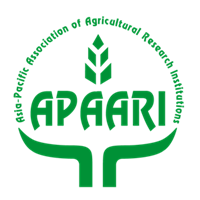With or Without a Script? Comparing Two Styles of Participatory Video on Enhancing Local Seed Innovation System in Bangladesh
Recent experiences in participatory video-making raise the question of how best to use this medium for enhancing local seed innovation systems. Embedded in a mini-process of participatory action research, two styles of participatory video—scripted and scriptless—were tested and assessed together with farmers and facilitators in Bogra District, Bangladesh. Data, collected through participant observation, informal interviews, group discussions and workshops, were analysed using a combination of Analytic Hierarchy Process (AHP) and Strengths, Weaknesses, Opportunities and Threats (SWOT) analysis. Scripted video can be used as a capacity-building tool and for disseminating sustainable technologies or local knowledge across geographical scales. But there is a risk of goal orientation to produce quality films, which may undermine the spirit of participation and ownership of the process. In the scriptless style, the process seems to be more inclusive but random, and hence, less goal-oriented. Scriptless video can be used as a monitoring tool in local seed innovation systems. Moreover, potential for stimulating self-sustaining spirit within the participant actors appeared to be higher in this style. However, this style may be difficult to institutionalize. Because of the spontaneous and subjective nature of the process and outcome (i.e. the film) that underlies scriptless videos, participatory video may be produced in a specific geographical context and not necessarily be replicable or relevant elsewhere. This study raises several critiques about the usefulness of these two major styles of participatory video and argues that both styles have specific usefulness and therefore can be used in combination to enhance local seed innovation systems in Bangladesh, and possibly, elsewhere in South Asia.
Related Resources

Enhancing farmers’ capacity for botanical pesticide innovation through video-mediated learning in Bangladesh
Contribution of Farmer-to-Farmer Video to Capital Assets Building: Evidence from Bangladesh
This study reports on the contribution of farmer– to-farmer video-mediated group learning to capital assets building of women in resource-poor households. Data were collected using structured interviews with 140 randomly selected women in 28 video villages and 40 women in...
Multiple water use as an approach for increased basin productivity and improved adaptation: a case study from Bangladesh
This study, supported by the Challenge ProgramWater and Food (CPWF-Project 35), demonstrates the case of multiple-use of water through seasonal aquaculture interventions for improved rice–fish production systems in the Bangladesh floodplains. The project focused on community-based fish culture initiatives, increasingly...
Making Innovation Work for Society: Linking, Leveraging and Learning

Report on Prioritization of Demand-driven Agricultural Research for Development in Bangladesh
The International Food Policy Research Institute (IFPRI) partnered with the Asia-Pacific Association of Agricultural Research Institutions (APAARI) in 2011 to conduct a series of policy dialogues on the prioritization of demand-driven agricultural research for development in South Asia. Dialogues were conducted with...


